Community Resources
Arts Education is Essential Unified Statement
This statement of support for arts education has been reviewed and endorsed by more than 50 national arts and education organizations. It outlines three key messages:
Arts education supports the social and emotional well-being of students, whether through distance learning or in person.
Arts education nurtures the creation of a welcoming school environment where students can express themselves in a safe and positive way.
Arts education is part of a well-rounded education for all students as understood and supported by federal and state policymakers.
How Communities Can Support Arts Education
Be Involved –
Volunteer your time, resources, knowledge, and skills.
Seek out partnerships and ways to connect with educators, artists, and other community organizations.
Help locate additional arts resources.
Donate supplies.
Be Informed –
Stay up to date on research and trends.
Be sure your elected officials know why arts education is important in your community.
Have a few talking points ready to share at any time.
Know a few categories to address – arts create culture, arts stimulate business, arts drive tourism, arts inspire young minds.
Be Visible –
Host events, help sponsor performances and activities.
Be an advocate, make the connections personal.
Share information in your local newspapers and showcase active arts partnerships at the schools.
How Parents Can Support Arts Education
Know Your Child’s School –
Find out what the school offers your child in music, art, theatre, and dance. Do classroom teachers receive training in the arts and arts integration? What additional opportunities exist that focus on the arts (performances, residencies, field trips, etc.)?
Form Relationships –
Talk to other parents about their knowledge in the arts. Share a few helpful resources to increase their understanding of the importance of the arts. Find out what expectations they have for their child’s education in the arts and share arts education research with them.
Talk to School Leadership –
Share why the arts are important for your child and be specific what actions you’d like taken. Provide data and information about how the arts support student growth academically, behaviorally, and socially. Encourage school wide collaboration with Mississippi Whole Schools.
Wondering how to articulate that MWS can help your school meet vital goals? Be sure to look at the Advocacy information on this website.
ADVOCACY
What is Advocacy? Who is an Advocate?
Advocacy is communication.
Advocacy is sharing information and showing support.
An Advocate is someone who speaks in support of someone or something else.
An Arts Education Advocate promotes the value of arts learning for all people and all ages.






